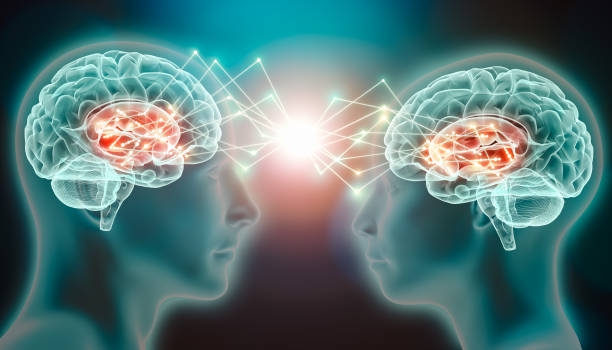In the quiet, unspoken corners of a young mind, memory takes shape—not just as facts, but as vivid, emotional moments that help us know who we are. A birthday party. A skinned knee. The time you laughed so hard milk came out of your nose.
But what happens when a child can’t recall such specific memories?
According to a new study published in Psychological Bulletin, that seemingly subtle difference could offer a powerful glimpse into the future. Researchers have found that children and adolescents who struggle to remember specific events from their past are more likely to develop mental illness later on—particularly depression.
The findings emerge from a sweeping meta-analysis of over 9,000 children across 14 independent longitudinal studies. Together, the data reveal an intriguing and emotionally resonant pattern: a child’s ability—or inability—to access the details of their own personal story may act as an early warning signal for psychiatric disorders years before symptoms fully take hold.
The Search for Early Signs
Mental illness rarely announces itself with a sudden crash. More often, it seeps in slowly, altering thoughts and feelings long before it crosses the threshold of diagnosis. And for decades, scientists have tried to identify early cognitive markers—subtle, measurable traits that can predict who’s at greatest risk.
One such marker is autobiographical memory specificity, a psychological mouthful that describes the ability to recall distinct, time-bound personal events. Unlike general memories (“I used to play outside a lot”), specific memories anchor a person to a moment in time (“I rode my bike down the hill behind Grandma’s house on my eighth birthday, and it was raining”).
Prior research had already observed that people with depression and other mental illnesses often struggle to recall these specific memories. But the question remained: Is this reduced memory specificity a symptom—or a signal?
That’s what Uyen Doan and a team of international researchers set out to investigate.
A Landmark Meta-Analysis
To answer that question, the researchers performed what’s called an individual participant data meta-analysis—a rigorous statistical technique that doesn’t just pool published results, but reanalyzes raw data from multiple studies to draw more precise conclusions.
The team analyzed responses from 9,165 children and teens between the ages of 6 and 18, all of whom were part of long-term research projects that tracked their mental health over months or even years. Every study included one key measure: the Autobiographical Memory Test (AMT), which prompts participants to recall specific personal memories in response to emotionally charged cue words like “happy,” “angry,” or “lonely.”
Across all studies, researchers looked for one crucial detail: how many of the children’s memories described single, concrete events lasting fewer than 24 hours—memories that captured a distinct moment in time.
Then they compared that data with later mental health outcomes, from subtle shifts in mood to full-blown diagnoses of anxiety, depression, or trauma-related disorders.
What the Results Showed
The findings paint a nuanced but significant picture.
Overall, the researchers found that children who had difficulty recalling specific memories were significantly more likely to develop a psychiatric disorder later on. The strongest link was with depressive disorders, which showed a robust association with earlier memory deficits—even after accounting for other risk factors like family history, trauma, or existing symptoms.
“These children may not yet show outward signs of depression, but their memory patterns could reflect deeper vulnerabilities in how they process emotional experiences,” said Doan in a statement accompanying the study.
Interestingly, the predictive power of memory specificity was less consistent when it came to symptom severity. In other words, memory performance didn’t reliably track whether someone’s anxiety or depression got worse over time, though it did appear to predict who would develop a disorder in the first place.
And in a somewhat unexpected twist, children who remembered more specific events sometimes showed slightly higher levels of anxiety symptoms—though this pattern was weak, inconsistent, and based on lower-quality evidence.
More Than Just Forgetfulness
What does it mean to lack memory specificity? Researchers suggest that it’s not just poor recall, but rather a cognitive coping strategy. Some children, especially those who’ve experienced stress or trauma, may learn to avoid emotionally charged memories by thinking in generalities—like flipping through a photo album with all the pages blurred.
But that coping mechanism, while protective in the short term, may limit their ability to reflect on the past, problem-solve, or regulate emotions—all skills that are critical for resilience.
“Memory is how we make sense of our experiences,” explained Dr. Ryan Ogliore, a researcher unaffiliated with the study. “If you can’t access the specific events that shaped you, it’s harder to learn from them—and harder to imagine different outcomes in the future.”
A Tool for Prevention?
For now, the results stop short of suggesting memory specificity tests should be used for clinical screening. But they do point to a promising avenue for early intervention.
“If we can identify kids who struggle with memory specificity before they show symptoms,” said Doan, “we may be able to develop tools to strengthen memory processing—and potentially reduce the risk of later illness.”
Such interventions might include narrative therapy, guided journaling, or mindfulness-based techniques that help young people connect with their lived experiences in more vivid, emotionally grounded ways.
The idea is simple but profound: helping children remember their own stories more clearly might protect them from mental illness down the road.
The Road Ahead
Like any large-scale study, this meta-analysis comes with caveats. Some findings—especially around symptom severity—were limited by inconsistent data quality or differences in how mental health was measured across studies. The researchers also noted considerable variation based on factors like age, gender, trauma exposure, and cultural background, with no clear pattern among these moderators.
Still, the study represents one of the strongest pieces of evidence to date that autobiographical memory isn’t just a psychological curiosity—it’s a potential window into the earliest stirrings of mental health risk.
And in a world where adolescent mental illness is on the rise, any window into early detection is a welcome one.
A Childhood Memory That Matters
In the end, the takeaway is both scientific and deeply human: our memories matter—not just for who we were, but for who we might become. A child who can’t remember the details of a birthday party or a rainy bike ride may not just be forgetful. They may be waving a red flag, silently, from the edges of their mind.
And now, finally, researchers are learning to see it.






